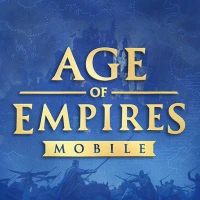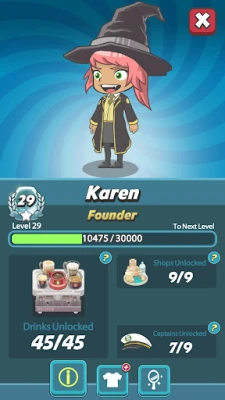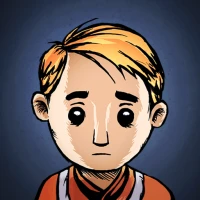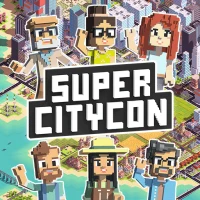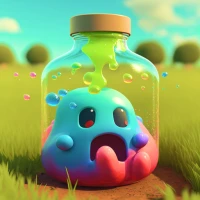
Latest Version
1.018.008
January 29, 2025
Fiveamp
Simulation
Android
0
Free
com.fiveamp.idle.tycoon.coffeecraze
Report a Problem
More About Coffee Craze - Barista Tycoon
Are you ready to become an entrepreneur? With this application, you can customize and upgrade your very own shop and employees. As you progress, you will unlock new equipment and decorations that will make your clients even more satisfied. As the boss, you have the power to manage an amazing shop and earn money by serving all your customers. The best part? You can download this game for free and open new coffee shops all around the world, building your very own coffee empire. Each shop can be expanded with multiple counters, allowing you to produce more hot and delicious caffeinated beverages to sell for cash. You get to choose which drinks to offer at your shop, strategically growing your business and collecting even more idle cash. But that's not all - you can also automate your shop with managers, so your baristas will continue to generate idle cash even when you're offline from the game. And as you improve your machines and productions, your idle cash income will increase as well. With up to 30 different coffee stations to manage in each shop, the possibilities are endless. And the best part? You don't even need wifi to play! This game can be played offline, making it perfect for those times when you're on the go or don't have access to internet. Want to connect with other coffee lovers? Join your Coffee Craze friends on Discord and share your love for all things caffeinated. And if you ever need help, you can always visit the support page for assistance. So what are you waiting for? Download this game now and start building your very own coffee empire!<|endoftext|>Object-oriented programming (OOP) is a programming paradigm that is based on the concept of objects. Objects are data structures that contain data, in the form of fields or attributes, and code, in the form of procedures or methods. These objects can interact with each other to perform tasks and solve problems. OOP focuses on organizing code into objects, which allows for better organization, reusability, and maintainability of code. It also allows for the creation of complex systems by breaking them down into smaller, more manageable objects. The four main principles of OOP are encapsulation, abstraction, inheritance, and polymorphism. Encapsulation refers to the bundling of data and methods within an object, allowing for data to be accessed and modified only through designated methods. Abstraction refers to the ability to hide the implementation details of an object and only expose necessary information to the user. Inheritance allows for the creation of new objects based on existing ones, inheriting their attributes and methods. Polymorphism refers to the ability of objects to take on different forms and behave differently based on their specific implementation. Some popular programming languages that use OOP include Java, C++, and Python. OOP is widely used in software development and is considered a powerful and flexible approach to programming.<|endoftext|>x = 5 This statement assigns the value of 5 to the variable x.<|endoftext|>Flashcard Subject: Chapter 1 Q: What is the definition of psychology? A: Psychology is the scientific study of behavior and mental processes. Q: What are the four goals of psychology? A: The four goals of psychology are to describe, explain, predict, and control behavior and mental processes. Q: What is the difference between basic and applied research? A: Basic research is conducted to expand the existing knowledge base in a particular area of study, while applied research is conducted to solve practical problems and improve the human condition. Q: What are the three main levels of analysis in psychology? A: The three main levels of analysis in psychology are biological, psychological, and environmental. Q: What is the nature-nurture debate? A: The nature-nurture debate is the ongoing discussion about the relative contributions of genetics (nature) and environment (nurture) in shaping behavior and mental processes. Q: What is the biopsychosocial approach? A: The biopsychosocial approach is an integrated perspective that incorporates biological, psychological, and social factors in understanding behavior and mental processes. Q: What is the difference between a theory and a hypothesis? A: A theory is a broad explanation or model of how something works, while a hypothesis is a specific, testable prediction based on a theory. Q: What is the scientific method? A: The scientific method is a systematic approach to gathering and evaluating evidence through observation, experimentation, and analysis to answer questions and test hypotheses. Q: What is a sample? A: A sample is a subset of individuals selected from a larger population for study. Q: What is a population? A: A population is the entire group of individuals that a researcher is interested in studying. Q: What is a random sample? A: A random sample is a sample in which every member of the population has an equal chance of being selected for the study. Q: What is a representative sample? A: A representative sample is
Rate the App
User Reviews
Popular Apps







